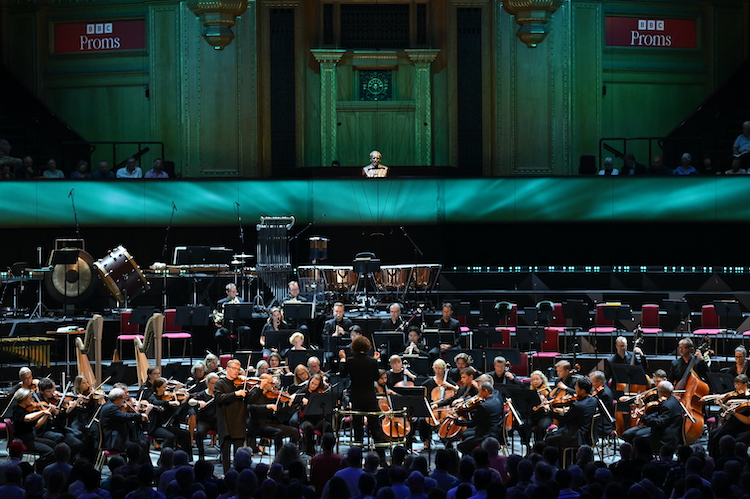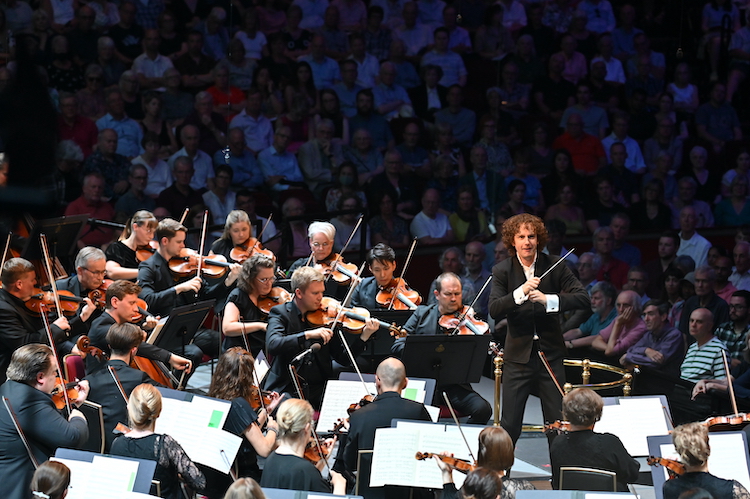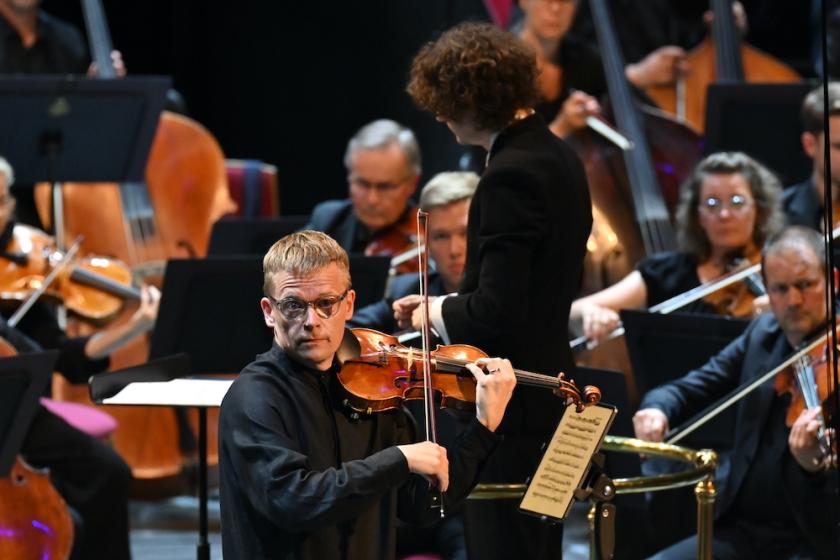Schoolteachers know – even if only the very best can put it into practice – that faced with a noisy classroom you shouldn’t raise your voice, but rather speak quietly. Over recent Proms seasons audience coughing has reached extreme levels, so the charismatic Finnish violinist Pekka Kuusisto took the bold course in playing Vaughan Williams’s The Lark Ascending as softly as it is possible to do – and the hall responded with the most silent, rapt attention I can remember there.
It's been fashionable to mock The Lark as long as it has been topping the Classic FM hall-of-fame, but hearing it last night I was struck by two things. First, it really is made of the slightest musical material: lots of pentatonic noodling, modal string chords, some folk-like tunes and not much else. But, second, it has a rhetorical strength that transcends these limited means, and Kuusisto, carefully obeying not just Vaughan Williams’s dynamics but his instructions about playing sul tasto (over the fingerboard), held the room in his thrall. This was (oxymoron alert) humble showmanship, Kuusisto’s sound at once fragile and confident. It was a pleasure to witness such masterful control of the hall, and the hall showed its love in return. He repeated the trick after the interval in a very different piece, the UK premiere of Thomas Adès’s Märchentänze. It seems a bit perverse to give a German title to a piece exploring British folk tunes, and it somewhat belies the music’s high-spirited lightness. It is the latest in a line of works in which Adés develops older music – his Three Studies from Couperin perhaps being the best – and this new work is in the tradition of Berio’s Folksongs, garbing simple diatonic tunes in elaborate and sometimes virtuoso orchestration.
He repeated the trick after the interval in a very different piece, the UK premiere of Thomas Adès’s Märchentänze. It seems a bit perverse to give a German title to a piece exploring British folk tunes, and it somewhat belies the music’s high-spirited lightness. It is the latest in a line of works in which Adés develops older music – his Three Studies from Couperin perhaps being the best – and this new work is in the tradition of Berio’s Folksongs, garbing simple diatonic tunes in elaborate and sometimes virtuoso orchestration.
For me Märchentänze hit the spot, although I’m sure it won’t have been to everyone’s taste. It seems to a reflect a new-found relaxedness in Adès work, which I heard in his Dante ballet for Covent Garden this year, whereby he can still dazzle with sheer technical facility but without sounding like he’s just showing off. The music also perfectly suited Kuusisto’s folky sound, the British tunes almost sounding Scandinavian. The Finnish Radio Symphony Orchestra (pictured above) were exuberant but the right side of rowdy in the faster movements (including Arvid Larsson’s delightful contrabassoon solo) and restrained and touching in the slow second dance – I found the dialogue between solo violin and clarinet (Christoffer Sundqvist) immensely moving. These two items were sandwiched between La Mer and Sibelius’s Fifth Symphony to complete an attractive programme that filled the RAH. In the Debussy, Nicholas Collon (pictured above) – dapper in a tie-less white shirt with the collars rakishly up – found details in the orchestration that often don’t come through, although this was occasionally at the expense of the homogeneity of sound that is crucial to Debussy’s sound-picture. It was very well played, with a strong purposefulness particularly in the second movement.
These two items were sandwiched between La Mer and Sibelius’s Fifth Symphony to complete an attractive programme that filled the RAH. In the Debussy, Nicholas Collon (pictured above) – dapper in a tie-less white shirt with the collars rakishly up – found details in the orchestration that often don’t come through, although this was occasionally at the expense of the homogeneity of sound that is crucial to Debussy’s sound-picture. It was very well played, with a strong purposefulness particularly in the second movement.
The Sibelius was also very good, especially in the first movement, which was completely engrossing. If I was being fussy, I would wonder out loud if the long-delayed return to E-flat in the last movement, the crowning moment of the whole piece, had quite enough sense of arrival, but the playing was very fine throughout and in Collon, the first non-Scandi chief conductor of the Finnish RSO, the orchestra has a conductor they clearly trust to lead them in the music of their national composer. And in further evidence of his humility – and his Finnish pride – Kuusisto also joined the orchestral ranks for the symphony.















Add comment